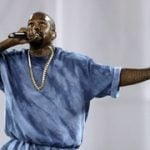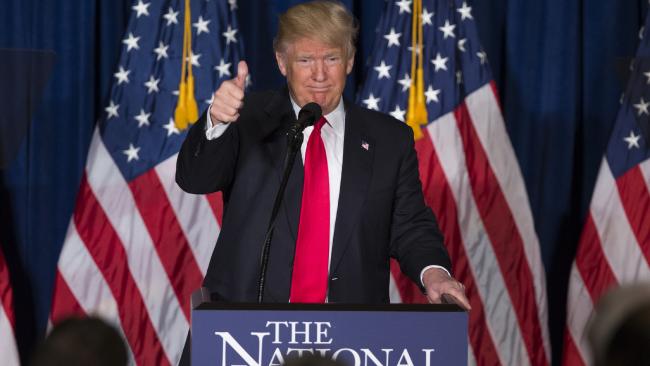
It’s not totally clear what’s going on with Kanye West. The rapper, who was filmed delivering onstage rants during recent shows in California, on Monday canceled the remaining 21 dates in his Saint Pablo tour. Hours later, he was reportedly hospitalized for stress and exhaustion.
West spent the night at Ronald Reagan UCLA Medical Center for his own safety, the Associated Press reported. Police, without confirming the patient as West, told AP that the officers arrived at a West Hollywood home for a disturbance, and an ambulance took the patient to the hospital to be placed on a psychiatric hold.
Before his hospitalization, West’s public breakdowns and stream-of-consciousness speeches have been the subject of jokes and disdain. But recent reports about West’s well-being have reopened a conversation about mental health, fame and hip-hop.
The genre has long been characterized by notions of hyper-masculinity that allow little room for vulnerability, and of black and brown men putting forward a tough, adversarial persona. But hip-hop has always had introspective moments (Geto Boys rapped “My mind is playing tricks on me” in 1991). In recent years, we’ve seen more artists opening up about their emotional and mental struggles in the public eye and on albums.
Eminem followed his 2009 album “Relapse” with one called “Recovery,” after experiencing addiction and depression. DMX has rapped and spoken about suffering from bipolar disorder. In October, Kid Cudi publicly announced on his Facebook page that he checked himself into rehabilitation for his “depression and suicidal urges,” writing “anxiety and depression have ruled my life for as long as I can remember and I never leave the house because of it.”
This followed angry tweets directed at Drake and West.

Kid Cudi performs at the Lollapalooza Music Festival in Chicago on Aug. 1, 2015. (Steve C. Mitchell/Invision/AP)
After it became public knowledge that Kid Cudi had checked into rehab, Drake released a song with lyrics dissing the rapper and his mental well-being. And despite the backlash against Drake online, the Toronto rapper doubled down.
But much of the response to Kid Cudi was positive. A hashtag, #YouGoodMan, gained momentum as a conversation around masculinity, race and mental health took place on social media.
On Monday, Kid Cudi posted a list of celebrities, artists and fans who actively supported him (including West). “Thank you for opening your hearts and extending your love and support during a troubling time,” he wrote.
Kendrick Lamar has also written and spoken about depression and the emotional tumult of being on a world tour while his best friends back home were gunned down. Much of his album “To Pimp a Butterfly” centers on survivor’s guilt.
[The sound and the fury of Kendrick Lamar at the Kennedy Center]
His lyrics were used for a Kaiser Permanente ad about depression. After a 2015 concert, Lamar saw a woman crying and murmuring “You saved my life.” She told him she was going to kill herself a year ago, but his music helped her through.
Pharoahe Monch, a beloved independent artist, has been open about dealing with depression, which he has said in interviews was induced by a combination of medications he was taking following hospitalization for his asthma.
“At that time, it wasn’t really like it was now, where you have people talking about issues readily in the public,” he said in a 2014 interview. “Years ago, it was just, ‘Yo, you bugging. Just deal with it.’”
In another interview, he told MSNBC host Melissa Harris-Perry that it was important for his 2014 album, “PTSD,” to include frank and vulnerable lyrics about his struggles and the stigma of depression within the black community.
“Growing up in the community, you look at mental issues as, we’re strong, and my parents were hard-working — it’s something that’s looked at as a weakness so you kind of push through it sometimes without even realizing what the issue might be.”
Pharoahe Monch, a beloved independent artist, has been open about dealing with depression, which he has said in interviews was induced by a combination of medications he was taking following hospitalization for his asthma.
“At that time, it wasn’t really like it was now, where you have people talking about issues readily in the public,” he said in a 2014 interview. “Years ago, it was just, ‘Yo, you bugging. Just deal with it.’”
In another interview, he told MSNBC host Melissa Harris-Perry that it was important for his 2014 album, “PTSD,” to include frank and vulnerable lyrics about his struggles and the stigma of depression within the black community.
“Growing up in the community, you look at mental issues as, we’re strong, and my parents were hard-working — it’s something that’s looked at as a weakness so you kind of push through it sometimes without even realizing what the issue might be.”
But West is not just a hip-hop artist; he is a megastar. Aside from music, he works in the fashion industry, and is married to one of the most famous women in the world, one who has built her career off documenting every aspect of her life. West’s tweets generate trending hashtags and breathless media coverage.
[What Kanye West said at the VMAs, annotated (full transcript)]
His public behavior over the years has fueled rumors among the public and garnered genuine concern from fans and those close to him. Much of this began after his mother’s 2007 death. He has gone on Twitter rants, given rambling interviews and stormed award-show stages — most famously in 2009, when he interrupted Taylor Swift’s MTV Video Music Award acceptance speech, turning him into a pariah and punchline.
Rhymefest, who has co-written West tracks for years, announced in February that he had stopped collaborating with the Chicago artist a month earlier after his work on “Life of Pablo” was complete. “His mind and spirit isn’t right,” Rhymefest tweeted. He also tweeted, “I love my brother. I pray for his health not our entertainment.”Last week, West brought a Sacramento concert to a halt with an onstage speech that went after, among other things, Jay Z, Beyoncé, Hillary Clinton, MTV and Facebook. When the news of his hospitalization broke Monday night, celebrities and artists immediately offered words of support.
“I want to extend a very special prayer to my big brother, Kanye West,” Chance the Rapper, a West collaborator, said in the middle of a performance on BBC Radio 1. “I want to just extend this prayer and extend this love from all the way in Britain. We might come back early to come see this man.”
Producer 9th Wonder tweeted, “been knowing the brother upwards of 13 years. Mental health is a serious thing, no matter what.”
He added: “Stay strong Kanye West.”
[Source:-THE WASHINGTON POST]


